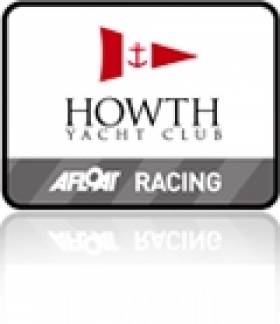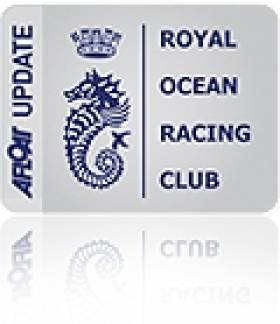Displaying items by tag: Checkmate IV
#hyc – Competitors at the Key Capital Spring Warmer series in Howth Yacht Club were treated to glorious sunshine on the opening weekend of the season but unfortunately for all, the wind gods weren't as generous writes Daragh Sheridan.
In Race 1 in Class 2's Dave Cullen's beautifully turned out Checkmate got off to a winning start from Maximus in second and K1 in third.
The SB20 fleet was led from start to finish by Michael O'Connor in Sin Bin despite a great second beat by Ger Dempsey on Venues World. The podium was completed by Jerry Dowling's Bad Kilcullen.
The J24 fleet had shown great commitment in getting entries from as far afield as Sligo, Carrickfergus and Lough Ree. It was a dominant performance by Steve Atkinson in Bad winning both races with Martin Reilly's Crazyhorse and Finbarr Ryan taking a second a third place in each of the two races.
Local Squib guru Fergus O'Kelly heads the fleet with two first places. Second is Brian O'Hare and Alain Deladienee followed by HYC's Dave Sheahan.
Unfortunately the SB20s and Class 1 & 2 only completed one lap before the wind shut down forcing the race committee to abandon their second race.
Hopefully we will see greater number out for the second Saturday as more boats get launched and there is no Leinster match competing for competitors attention.
Irish IRC Champions Head for Cowes Showdown
#rorc –Fresh from success at last month's ICRA Nationals at Howth YC both the Irish Class zero and class two champions head for Cowes this weekend for the Royal Ocean Racing Club's (RORC) British IRC Championships writes Louay Habib.
Anthony O'Leary's Zero champion, the Ker 39 Antix and the Class two champion Nigel Bigg's Checkmate IV will be looking for a British title too when well over 400 sailors from all over Europe gather in Cowes this weekend for the annual three day event on tight Solent courses. Close encounters are expected for four classes under tight rating bands.
Since the first edition in 2000, the annual RORC inshore championship has always attracted a highly competitive fleet and this year is no exception.
Also competing in Cowes is Round Ireland champion Piet Vroon from Holland who is heading back to defend his offshore crown in Wicklow in two weeks time.
The sizeable fleet boasts close to 20 yachts that are past or present competitors for the Brewin Dolphin Commodores' Cup. Winning class at the RORC IRC National Championship is extremely tough and class victors will savour that moment for years to come.
IRC One has produced one of the most impressive fleets for many years. Piet Vroon's Ker 46, Tonnerre de Breskens, should be the fastest boat around the track but there will be four Ker 40s nipping at the Dutch flyer's heels. Nigel Passmore's Apollo will be highly motivated to take a national title back to Plymouth. Whilst Andrew Pearce's Magnum III and Harmen de Graaf's Baraka GP will be racing each other for the first time, prior to representing Benelux and Great Britain in the Brewin Dolphin Commodores' Cup. However, the depth of talent in this class is quite remarkable, including some notable proven winners: O'Leary's Ker 39, Antix, Michael Bartholomew's King 40, Tokoloshe, Andrew Williams' Mills 39, Dignity, and RORC Commodore, Mike Greville's Ker 39, Erivale III.
"We expect some very challenging racing, which is exactly what is required if we are to continue to improve our performance," commentedMagnum III skipper, Andrew Pearce. "The championship will have some of the best competition from the South Coast and beyond, it will be a thorough test for all of us."
In IRC Two the UNCL President, Marc de Saint Denis, will be racing MC34 Courrier Vintage in good company. No doubt, former RORC Commodore, Andrew McIrvine, will give the Frenchman a warm welcome to Cowes but no quarter once they are out on the racecourse. McIrvine has been in fine form offshore this season but the class has many well-honed adversaries. Kirsty and David Apthorp's J/111 J-Dream came within a whisker of winning Spi Ouest this Easter and Nicolas Gaumont-Prat's First 40.7, Philosophie IV, and Jim Macgregor's Elan 410, Premier Flair, will both be representing Great Britain in next month's Brewin Dolphin Commodores' Cup. Philosophie IV was runner up in IRC Two last year and will be looking to go one better in 2012.
In IRC Three, Mike Bridges' Elan 37, Elaine, is back to defend their title but the class also boasts two teams representing Britain in the Brewin Dolphin Commodores' Cup: Peter Morton's Corby 33, Salvo, and the British Keelboat Academy's J/109, Yeoman of Wight, will both be looking to impress. From overseas, Philippe Bourgeois' A35, Dunkerque Plaisance is in fine form, having won their class earlier this month at Normandy Sailing Week and Dutch J/109, Captain Jack, skippered by Round the World racer Bert Visser, is relishing the event. "We cannot get this standard of competition in Holland," admits Visser. "It is well worth the effort to come over for the championship. It is an important event for us and we expect some very good racing."
In IRC Four, Nigel Biggs is a veteran of the championship and will be looking to come out on top with the beautifully prepared vintage Half Tonner, Checkmate XV. The small boat class also has a number of well-sailed modern bowsprit boats. Father and son team, Mike and Jamie Holmes racing J/97 Jika Jika, entered months ago, having identified the championship as a key event of their season.
'It will be a testing event for us," predicted Jamie Holmes. "We are expecting some extremely close racing, I think that key reasons for the popularity of the event are that there is usually a good range of conditions and the races are always well run, which attracts impressive opposition. The IRC National Championship is an excellent event to hone our skills for the J/97 UK Nationals in Guernsey this summer."

























































